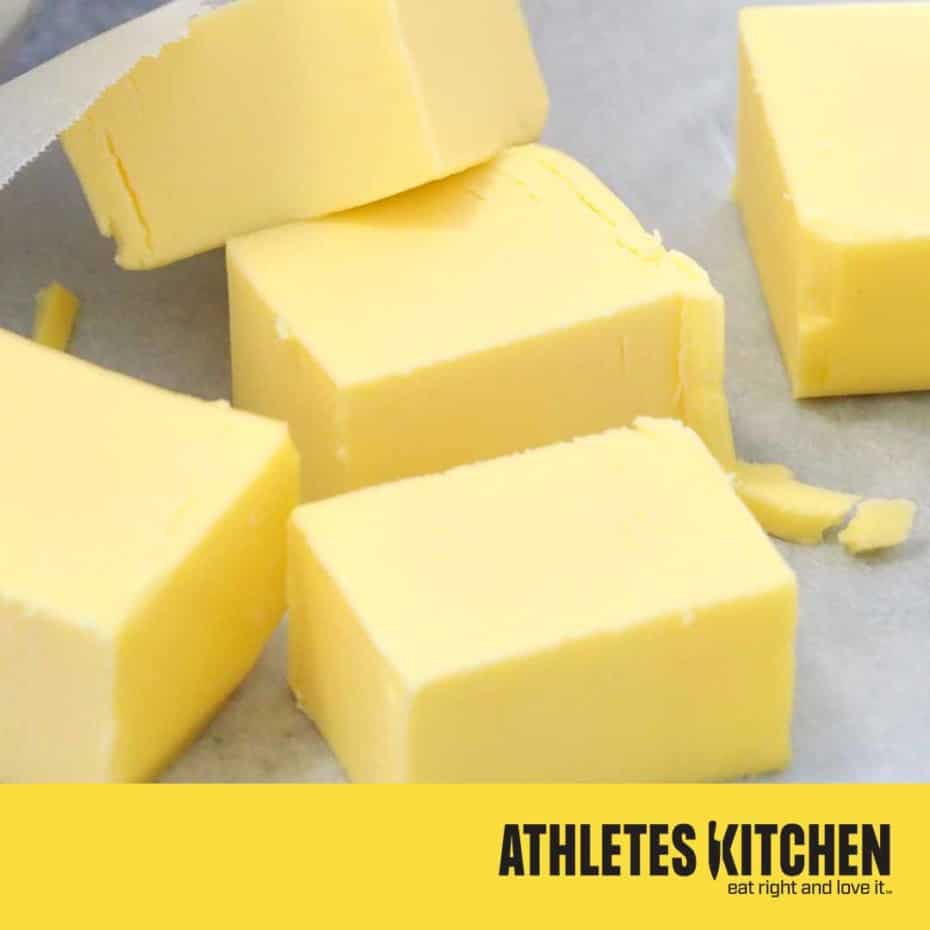Saturated and Polyunsaturated Fats
What You Need to Know
Fats are a critical part of the human diet, yet not all fats are created equal. While our bodies require certain fats to function optimally, others can pose health risks when consumed in excess. Among the types of fats, saturated and polyunsaturated fats often come up in discussions about heart health, weight management, and general wellness. Let’s delve deeper into each type, explore their sources, and examine how they impact our bodies to help you make informed choices.
Understanding Saturated Fats
Before exploring saturated and polyunsaturated fats, it helps to understand what fats are and why they’re so important. Fats, also known as lipids, are a diverse group of compounds that play numerous vital roles in our bodies:
1. Energy Source: Fats are one of the three primary macronutrients (alongside carbohydrates and protein) that provide energy. They are the most energy-dense macronutrient, providing nine calories per gram, more than double the energy of carbs and protein.
2. Essential for Absorbing Vitamins: Certain vitamins, like A, D, E, and K, are fat-soluble, meaning they need fat to be absorbed by the body. Without enough dietary fat, we can become deficient in these crucial nutrients.
3. Structural Role: Fats are key components of cell membranes, giving cells structure and integrity. Polyunsaturated fats, particularly, help keep cell membranes flexible and functional.
Despite their essential functions, dietary fats are often the subject of confusion and controversy. Some fats, particularly trans fats and saturated fats (Sourced from inhumanly raised animals) inlarge quantities, can negatively impact our health, while other fats, like polyunsaturated and monounsaturated fats, have been shown to offer protective effects.
What Are Saturated Fats?
Saturated fats are fats with a unique molecular structure, containing no double bonds between the carbon atoms, resulting in each carbon atom being “saturated” with hydrogen atoms. This makes them relatively stable, and solid at room temperature. They are typically found in animal products but are also present in a few plant sources.
Primary Sources of Saturated Fats:
• Animal Products: These include red meats (beef, pork, and lamb), poultry with skin, full-fat dairy products (cheese, butter, and cream), and certain processed meats.
• Plant Oils: Coconut oil, rich in saturated fats, often used in cooking, baking, and food processing.
• Packaged Foods: Many processed and packaged foods, including baked goods and fried snacks, contain higher levels of saturated fats due to the use of butter or palm oil.
How Saturated Fats Affect Health:
For decades, saturated fats have been linked to increased cholesterol levels, specifically LDL (low-density lipoprotein) cholesterol, which is often labeled as “bad” cholesterol. Elevated LDL cholesterol has been associated with plaque buildup in the arteries, increasing the risk of heart disease and stroke. However, recent studies reveal a more nuanced picture, suggesting that while saturated fats can raise LDL cholesterol, they may not pose as much harm as previously believed, especially if consumed in moderation and balanced with healthier fats. Fats that are sourced from animals which were not humanely raised have been discovered to elevate bad cholesterol.
Current Recommendations for Saturated Fat Intake:
Health guidelines from organizations like the American Heart Association and World Health Organization still advise limiting saturated fat intake to less than 10% of daily calories. For a 2,000-calorie diet, this equates to around 20 grams of saturated fat per day. The focus is on moderation rather than total elimination, as saturated fats can be part of a balanced diet when consumed alongside a variety of other fat sources.
Exploring Polyunsaturated Fats
Polyunsaturated fats, which include omega-3 and omega-6 fatty acids, have multiple double bonds in their structure, making them liquid at room temperature. These fats are known for their positive effects on heart health and overall wellness. Unlike saturated fats, which the body can synthesize, polyunsaturated fats contain essential fatty acids that our bodies cannot produce, meaning they must come from our diet.
Types of Polyunsaturated Fats:
- Omega-3 Fatty Acids: Known for their anti-inflammatory properties and benefits for heart and brain health, omega-3s are found in foods like fatty fish (salmon, mackerel, sardines), flaxseeds, chia seeds, and walnuts.
Sources of Polyunsaturated Fats:
- Fish and Seafood: Salmon, sardines, mackerel, and trout are rich in omega-3 fatty acids.
- Nuts and Seeds: Walnuts, flaxseeds, chia seeds, and hemp seeds provide omega-3s, while sunflower and pumpkin seeds offer omega-6s.
Health Benefits of Polyunsaturated Fats:
- Heart Health: Polyunsaturated fats, particularly omega-3s, help reduce LDL cholesterol levels while increasing HDL (“good”) cholesterol. Regular omega-3 intake has been linked to reduced blood pressure, lower triglycerides, and reduced inflammation, all of which support cardiovascular health.
- Brain Health: Omega-3s, specifically EPA and DHA (types of omega-3s), are essential for brain development and function. Studies have shown that omega-3s may reduce the risk of cognitive decline and support mental health, reducing symptoms of depression and anxiety.
- Anti-Inflammatory Effects: Omega-3s have powerful anti-inflammatory properties, which benefit individuals with chronic inflammatory conditions, including rheumatoid arthritis, inflammatory bowel disease, and other autoimmune conditions.
- Joint and Skin Health: Polyunsaturated fats help maintain cell membranes, supporting joint flexibility and promoting smooth, hydrated skin. Omega-3s can be particularly beneficial for people with dry skin or eczema, helping reduce inflammation and improve skin health.Comparing Saturated and Polyunsaturated Fats
When it comes to heart health, polyunsaturated fats generally have a more beneficial impact compared to saturated fats. While saturated fats are linked to higher cholesterol levels and an increased risk of heart disease, polyunsaturated fats can help decrease bad cholesterol and lower the risk of heart disease and stroke.
We’ll examine how these fats influence cholesterol levels and heart disease risk, clarifying why replacing saturated fats with polyunsaturated fats is recommended.
Comparing Saturated and Polyunsaturated Fats: The Role Each Plays in a Healthy Diet
Both types of fats have their place in a balanced diet. Understanding how they interact within the body and how much we should consume can help guide our choices.
1. Structure and Stability
- Saturated Fats: Their solid structure makes them more resistant to oxidation, which is why they’re commonly used in processed foods for longer shelf life.
- Polyunsaturated Fats: The double bonds in polyunsaturated fats make them more susceptible to oxidation, which is why they should be stored in a cool, dark place and consumed fresh.
2. Impact on Cholesterol Levels
- Saturated Fats: Tend to raise both LDL and HDL cholesterol, which can contribute to plaque buildup in arteries when consumed in excess.
- Polyunsaturated Fats: Generally lower LDL cholesterol and have been shown to increase HDL levels, contributing to a healthier cholesterol profile.
3. Inflammation and Cellular Health
- Saturated Fats: Excessive intake may lead to increased inflammation, particularly when replacing polyunsaturated fats.
- Polyunsaturated Fats: Omega-3s, in particular, are anti-inflammatory, supporting cellular health and reducing the risk of chronic diseases.
Achieving the Right Balance in Your Diet
It’s important to strike a balance between the types of fats you consume, as each serves different functions. Here’s how to incorporate the right fats into your diet:
1. Prioritize Plant-Based Oils and Fish
Choose oils like olive, flaxseed, and avocado oils for cooking and salad dressings, and aim to consume fatty fish at least twice a week. These provide essential polyunsaturated fats that support heart and brain health.
2. Replace Processed Foods with Whole Foods
Packaged and processed foods often contain higher amounts of saturated fats, trans fats, and refined sugars. Focus on whole foods such as lean meats, nuts, seeds, vegetables, and grains for a diet that’s naturally balanced in healthy fats.
3. Add Seeds and Nuts to Your Diet
Nuts and seeds like almonds, walnuts, chia, and flax are rich sources of healthy fats and fiber. Sprinkle them on salads, yogurt, or oatmeal to add texture, flavour, and nutrition to your meals.
4. Practice Moderation with Red Meat and Dairy
While these foods are natural sources of protein, they are also higher in saturated fats. Choose lean cuts of meat, and consider swapping full-fat dairy with low-fat options occasionally to reduce your intake of saturated fats.
Using Fats Wisely: Cooking Tips and Food Pairing Ideas
To get the most out of your dietary fats, consider how different fats are best used in cooking:
- Cooking at High Temperatures: Saturated fats like coconut oil and butter or ghee are more stable and suitable for high-heat cooking. However, try to use them sparingly in cooking.
- Cold Dishes and Low-Heat Cooking: Polyunsaturated fats from flaxseed, walnut, and olive oils are better in cold dishes like salads or low-heat cooking due to their instability at high temperatures. Avoid frying with these oils, as heat can damage their delicate structure.
- Mixing Fats for Flavour and Function: A little saturated fat can enhance flavor while polyunsaturated fats provide health benefits. Try adding a small amount of cheese to salads with walnuts, or a sprinkle of coconut on an omega-3-rich smoothie bowl.
- Use Avocados as a Healthy Fat Source: Avocados are a fantastic source of monounsaturated fats, another type of healthy fat that balances well with both saturated and polyunsaturated fats. Use avocados in sandwiches, salads, or even smoothies.
Athletes Kitchen: Nutrition-Packed Meals with Balanced Fats
At Athletes Kitchen, we prioritize quality ingredients that support your fitness and health goals. Whether you’re on our Elite, Athlete, Shredding, and Nu-Paleo plan, we design our meals to include a mix of healthy fats while keeping saturated fats at manageable levels. With options like omega-3-rich fish, seeds, and a variety of plant oils, you’ll find that our meals provide the right balance to fuel your body without sacrificing flavor or health.
Our Chef’s Choice option ensures you get a rotating variety of meals with balanced macronutrients, allowing you to enjoy delicious, fresh meals that align with your fitness and wellness goals.
Final Thoughts on Fat in Your Diet
Fats are an essential part of a healthy, balanced diet, and both saturated and polyunsaturated fats can be beneficial when consumed mindfully. By incorporating a variety of healthy fats, focusing on whole foods, and avoiding excessive intake of processed foods, you can support your body’s needs and improve your health outcomes. With Athletes Kitchen, we’re committed to providing meals that meet these needs, so you can enjoy delicious and nourishing food, meal after meal.
Frequently Asked Questions
What are the main differences between saturated and polyunsaturated fats?
The main differences between saturated and polyunsaturated fats lie in their physical state at room temperature and their health effects; saturated fats are solid and can raise LDL cholesterol levels, while polyunsaturated fats are liquid and have a beneficial effect on heart health by lowering LDL cholesterol. Prioritizing polyunsaturated fats in your diet can enhance overall cardiovascular well-being.
How can I reduce my intake of saturated fats?
To effectively reduce your intake of saturated fats, prioritize lean meats, low-fat or fat-free dairy products, and avoid processed foods high in saturated fats. Reading food labels for lower saturated fat options will further assist in your goal.
What are some good sources of polyunsaturated fats?
Polyunsaturated fats can be effectively obtained from sources such as vegetable oils (canola, corn, soybean, and sunflower), walnuts, flaxseeds, chia seeds, and fatty fish like salmon, mackerel, and sardines. Incorporating these foods into your diet can enhance your overall health.
Are all fats bad for my health?
Not all fats are detrimental to health; healthy fats, such as monounsaturated and polyunsaturated fats, are crucial for bodily functions and can enhance heart health. Prioritizing these beneficial fats while limiting unhealthy options is essential for a balanced diet.
Are low-fat diets always healthier?
Low-fat diets are not always healthier, as they can be high in carbohydrates that may negatively affect triglyceride levels. Including healthy fats from sources like avocados, nuts, and fatty fish can enhance overall health and satisfaction.


